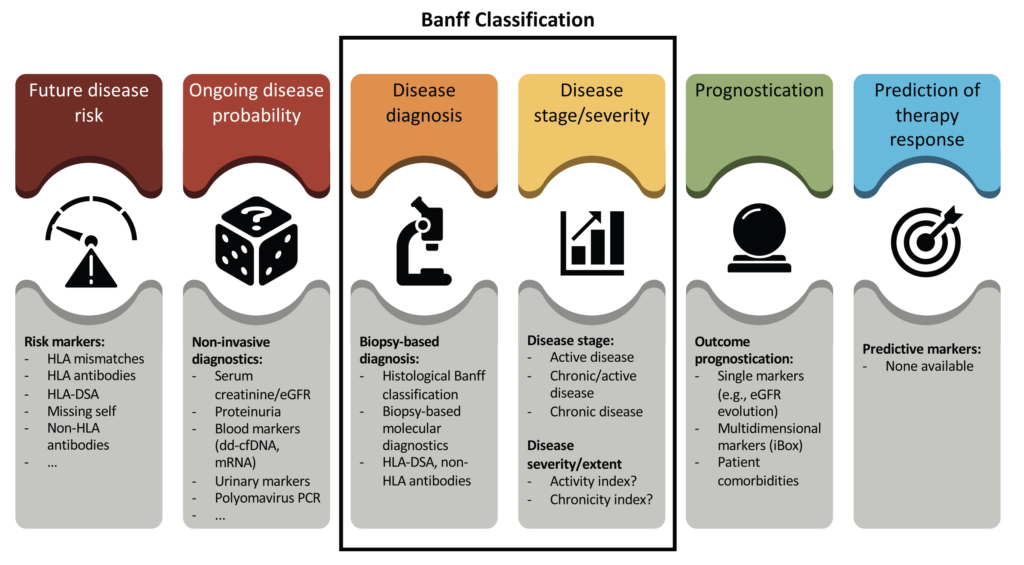Abstract:
The XVI-th Banff Meeting for Allograft Pathology was held at Banff, Alberta, Canada, from 19th to 23rd September 2022, as a joint meeting with the Canadian Society of Transplantation. To mark the 30th anniversary of the first Banff Classification, premeeting discussions were held on the past, present, and future of the Banff Classification. This report is a summary of the meeting highlights that were most important in terms of their effect on the Classification, including discussions around microvascular inflammation and biopsy-based transcript analysis for diagnosis. In a postmeeting survey, agreement was reached on the delineation of the following phenotypes: (1) “Probable antibody-mediated rejection (AMR),” which represents donor-specific antibodies (DSA)-positive cases with some histologic features of AMR but below current thresholds for a definitive AMR diagnosis; and (2) “Microvascular inflammation, DSA-negative and C4d-negative,” a phenotype of unclear cause requiring further study, which represents cases with microvascular inflammation not explained by DSA. Although biopsy-based transcript diagnostics are considered promising and remain an integral part of the Banff Classification (limited to diagnosis of AMR), further work needs to be done to agree on the exact classifiers, thresholds, and clinical context of use.

